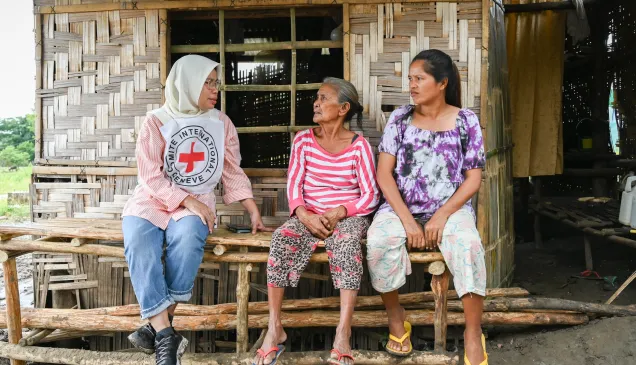ICRC explainer: What does international law say about pardons for war crimes?
As the issue of pardons for individuals accused or convicted of war crimes receives increased attention in the United States, the ICRC is taking the opportunity to explain what the law says.
Pardons: What are they?
Pardons may be granted to individuals who have been convicted of a crime and, when used judiciously, they are an important and legitimate component of legal systems throughout the world.
Pardons can also be controversial, and it is important that the pardon process balances the interests of the accused or convicted individual with the interests of justice and broader society. These broader interests may include the need for accountability and for victims to see justice as having been served.
In the case of armed conflicts, other relevant factors include the potential impact of pardons on military discipline or a country’s reputation and security if violations of international humanitarian law (IHL) are not dealt with – or perceived to have not been dealt with – sufficient seriousness. Pardons might also dissuade others from reporting violations, which can contribute to an atmosphere that allows violations to continue.
Pardon vs amnesty
Pardons are an act of forgiveness by a country’s Executive (usually the President or Prime Minister) to revoke a penalty and restore an individual’s civil rights, without quashing a conviction.
Amnesties are a legislative or executive act that bars criminal investigation or prosecution of an individual or, more commonly, a group, often in relation to acts committed during an armed conflict. Amnesties usually cancel any penalties that have been previously imposed.
In some countries, the distinction between the two processes is not clear-cut, and individuals or groups have been “pardoned” prior to trial in certain instances. Pardons granted post-conviction are generally more akin to clemency than amnesty.
IHL does not address pardons as understood above (i.e. post-conviction).
However, it does contain rules pertaining to the granting and scope of amnesties. Under this body of law, States/governments must investigate and punish war crimes, otherwise known as serious violations of IHL.
In addition, States may not provide amnesties for war crimes, which include murder, torture, sexual violence, attacking civilians, and a host of other offences when committed during armed conflict.
States may adopt certain measures during and in the aftermath of war to promote reconciliation and peace, one of which is offering amnesty through special agreements, legislation or other measures.
Such measures can be effective in enabling communities and nations to begin to heal from the wounds of war and for societies to move forward.
In fact, under Additional Protocol II to the Geneva Conventions applicable to non-international armed conflicts (i.e. wars that involve at least one non-State armed group and usually take place within a given country), the authorities in-power must endeavor to grant the broadest possible amnesty at the end of hostilities.
A notable exception
However – and this is important – people suspected, accused or sentenced for war crimes are excluded from amnesty, according to customary IHL. (Customary international law consists of rules that come from "a general practice accepted as law" and exist independent of treaty law.)
Customary law is unequivocal that in both international armed conflicts (i.e. cross-border wars between opposing militaries) and non-international armed conflicts, governments must investigate war crimes allegedly committed by their nationals or armed forces, or on their territory, and if appropriate, prosecute suspects.
With regard to amnesty, the objective should not be to enable war criminals, or those thought to have seriously violated the laws of war, to evade punishment for their actions.
The ICRC believes that upholding international humanitarian law should be a paramount concern for States, and when serious allegations supported by sufficient evidence are made, cases should proceed to trial in order to ensure an impartial examination of the evidence.
The ICRC’s role
As a strictly neutral, independent and impartial humanitarian organisation, the ICRC does not participate in politics. We recognize and respect the sovereign right of governments to take decisions based on their domestic legislation and constitutional laws, in compliance with international law.
It is not our place to comment publicly on the fairness or correctness of a particular pardon or amnesty, and any concerns we may have with regard to a specific decision are raised bilaterally and confidentially with the relevant authorities.
That said, the ICRC is mandated by States through the Geneva Conventions and their Additional Protocols to promote and act as the guardian of international humanitarian law. As such, when debates surface in the public domain on issues related to the laws of war, it is our role and responsibility to call attention to what IHL says.
Members of the media seeking further information may contact:
Eliza Shaw, ICRC Washington DC, tel: +1 202-361-1566
ICRC Media Service, Geneva, tel: +41 79 217 3232



